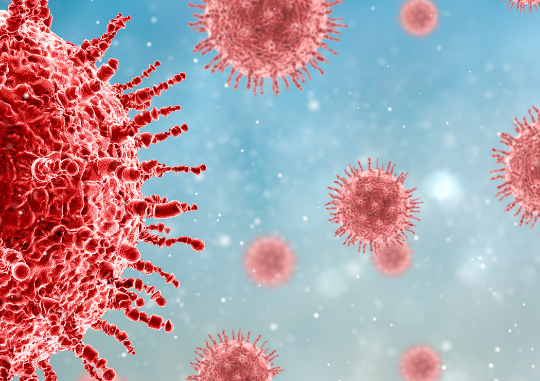
The COVID-19 pandemic has affected almost everybody. In many cases, dealing with daily life has been made more difficult. For adults with ADHD*, the stress of dealing with the pandemic response may have had an even greater effect than on people without ADHD.
Many of the coping strategies adults with ADHD have developed over their lives, such as structured workdays, engrained habitual practices, sandwiching difficult tasks together and teamwork/delegation, have been completely disrupted by the changes to our work and home life during the COVID-19 pandemic response.
We have known for a long time that outbreaks of dangerous viruses can exacerbate existing mental health conditions. During the coronavirus pandemic, there is emerging evidence that the disease itself and the political response to the pandemic through lockdown, quarantine and isolation have been particularly challenging for the ADHD community.
It is therefore particularly important to identify and treat adults with ADHD during the pandemic, but Adult ADHD has in fact been significantly under-diagnosed and under-prioritised as we battle the virus. This is frustrating for adults with ADHD and their support networks as there are clear financial and social benefits of supporting ADHD at this time. Mainly because when undiagnosed, adults with ADHD are more likely to die early, cost the NHS money, result in criminal cases etc. But with diagnosis, treatment and support, adults with ADHD have the opportunity to be as effective in the workplace as any of their colleagues (consistent with the 2010 Equality Act).
Evidence for ADHD and COVID19.
The pandemic response itself led to a reduction in availability of clinical mental health support casting ‘a long shadow’ on provision and availability according to Chris Whitty (Chief Medical Officer). Digital and distanced health support has been implemented although according to Rachel Power, CEO of the Patient’s Association charity, ‘we still have a long way to go to develop these with consistent quality and equal access for all and data safety’. The European ADHD Guidelines Group (EAGG) published guidance in The Lancet for clinical ADHD support during the pandemic such as tele-psychiatry, awareness of behavioural issues and extra prescriptions.

A study on more than one thousand people with ADHD (across all age ranges) suggested that untreated ADHD led to behaviours incompatible with protection from COVID19 infection and that medical treatment reduced this risk. This was probably a combination of the inattentive symptoms leading to problems such as following viral safety instructions or listening carefully as well as impulsiveness/hyperactivity symptoms such as fidgeting, face-touching etc.
Furthermore, the changes during the pandemic have been shown to have negative effects on the behavioural, social, personal and health impairments faced by individuals with ADHD. Boredom, motivation and isolation are all key factors of ADHD. Combining this with the exacerbated health anxiety and difficulty regulating emotional responses, it is unsurprising that the pandemic has exacerbated the challenges faced by adults with ADHD.
Conclusions
The pandemic has exacerbated the challenges faced by adults with ADHD medically, socially and in the workplace/educational setting.
The practical changes necessary following the changes in physical availability of patients during the pandemic are an opportunity for an efficient and effective future. Investing in support that can be used during periods of isolation, such as flexible treatment options and digital health platforms with connectivity to patients, employers and clinical support could be key innovations following the COVID19 response. However these need to be an improvement to every day care, regardless of an emergency event.
It also makes serious social, financial and health sense to finance the referrals and treatment of individuals who may have ADHD. Prioritising ADHD diagnosis and treatment is likely to reduce infection risk to the individuals and therefore the whole population.
This also will improve the mental health of the ADHD community during and after the pandemic response.
*Adults with ADHD have a complex mixture of a disorder and a neurodiverse personality. Depending on their ADHD subtype, they can have a stable but individual blend of impulsiveness, inattention and (to a lesser extent than in children), hyperactivity. It is estimated that between 2 and 4% of all adults are living with ADHD.
Author: Alex Conner PhD.
Editor: James Brown PhD.


Leave a Reply
You must be logged in to post a comment.